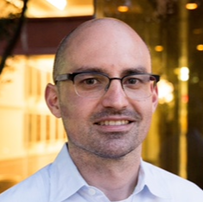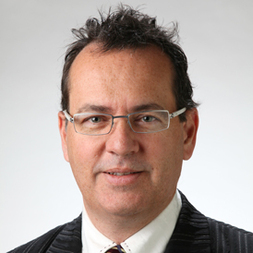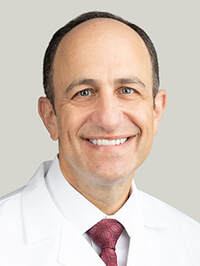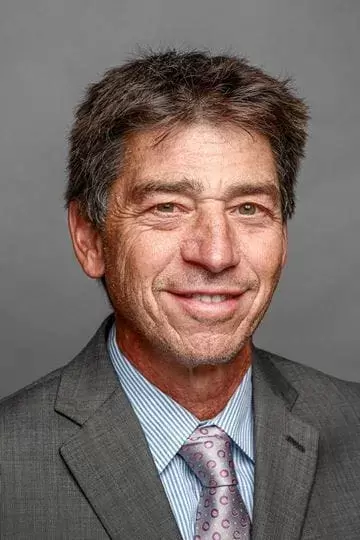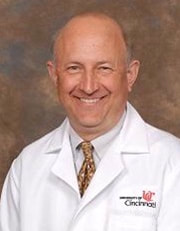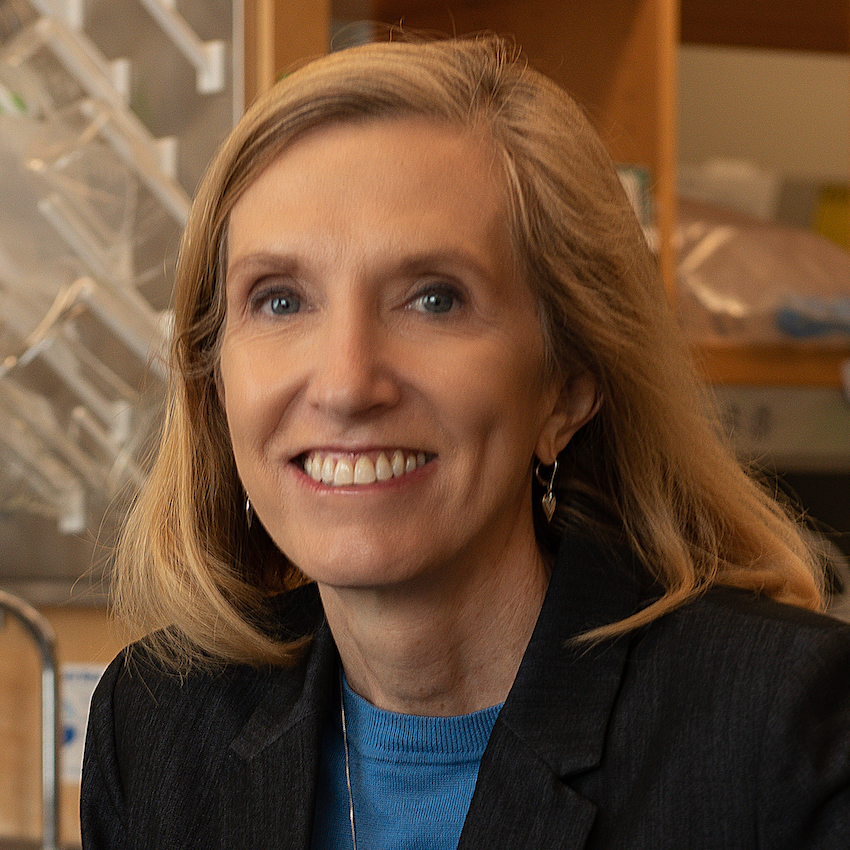Our team has a track record of company creation, successful technology spin-outs, FDA-approvals and IPOs.
Leadership
|
Ritu Shah
Chief Executive Officer Ritu Shah joined ClostraBio as CEO in December 2022. Ritu is the Managing Director at Portal Innovations, a Chicago-based venture development engine focused on early-stage life sciences enterprises, where she will position and accelerate seeded companies to the next round of funding. Ritu is a seasoned biotech executive with over two decades of experience. She has a proven track record of success in leading four successful mergers & acquisitions along with new company formation and operations. Ritu has led several drug development campaigns with emphasis on strategic and therapeutic portfolio management across private and public pharmaceutical and biotechnology companies. Ritu has spent the last five years in biotech. Most recently, she was Chief Operating Officer of Pyxis Oncology and assisted in taking the company public in 2021 (Nasdaq: PYXS). Ritu also led the integration of AveXis, a gene therapy company, following the $8.7B acquisition by Novartis. She spent the previous eight years at Shire (Baxter, Baxalta) managing the Immunology portfolio which included R&D, manufacturing, and commercial. Ritu started her career in consulting focusing on pharma R&D and supply chain. Ritu is a strong supporter of the local community and is a Board Member for the Northbrook Bank & Trust Company, A Wintrust Community Bank as well as an Advisory Board Member for the Glenbrook North High School Incubator Program. Ritu received her B.S. in Chemical Engineering from the University of Notre Dame. |
|
Brett Newswanger
Chief Operating Officer As COO at ClostraBio, Brett focuses on managing the company's product development activities and business operations. He previously spent nearly 10 years at Xeris Biopharma where, as the first non-founding hire, he helped develop Gvoke HypoPen (glucagon injection), the first liquid-stable glucagon formulation in an autoinjector for treatment of severe hypoglycemia. Brett was involved in all aspects of Gvoke drug development including CMC, preclinical, clinical, regulatory and human factors, leading to the product's approval by FDA in 2019. Brett was also involved in Xeris' business operations and fundraising efforts, from a $1.5 million Series A and multiple non-dilutive grants ($10+ million) to a $98 million IPO in 2018 (Nasdaq: XERS). Prior to Xeris, Brett worked at Merck & Co. in vaccine manufacturing and at GSK in biopharmaceutical manufacturing. He received a B.A. from Ursinus College, a B.S. in Chemical Engineering from Columbia University and an M.B.A from the University of Texas at Austin (Hook 'em Horns!). |
|
Brian Meehan, PhD
Chief Scientific Officer Brian has been conducting research around the human gut microbiome for more than 20 years. He earned his PhD in microbiology and molecular biology from Tufts University, where he elucidated biochemical pathways that enable strict anaerobes to thrive in the human gastrointestinal tract. He leveraged this knowledge during his postdoctoral fellowship at Harvard Medical School, where he worked to characterize small molecules that disrupt these critical physiological processes, enabling development of a new class of antibiotics. This sparked a strong desire to develop microbiome-directed therapeutics, leading Brian to transition into the biotech space at Kaleido Biosciences. There he led a team of multidisciplinary scientists through the discovery and development of novel prebiotics for the treatment of liver diseases, and those efforts ultimately culminated in a successful IND. From there Brian became the first employee and Head of Microbiology at Pareto Biosciences, a group dedicated to treating and preventing food allergies using a consortium of gut microbes to induce immune tolerance. He was a major contributor to all aspects of Pareto’s mission, from overseeing the manufacturing of live microbes to scientific strategy, clinical design, and platform expansion. His experience uniquely suited him for his work at ClostraBio, where he oversees the manufacturing and development of CLB101™. |
|
Ray Pasinski
CMC & Quality Assurance Advisor Ray joined ClostraBio as head of Chemistry, Manufacturing & Controls in October 2022. Ray has more than 30 years’ experience in the pharmaceutical industry, ranging from drug substance and drug product development and commercial manufacturing to leading and supporting quality and regulatory functions. From the beginning of his career in pharmaceutical analytical methods and development at Baxter Healthcare, his major focus has been on drug formulation and manufacturing. Most recently as VP of Pharmaceutical Development and Technical Operations at Romark Laboratories, Ray was responsible for the manufacturing of the only FDA approved product, Alinia (nitazoxanide), for treating diarrhea caused by both Giardia lamblia and Cryptosporidium parvum. He also developed a controlled release drug product which was tested in Phase 3 clinical trials as a potential treatment for Hepatitis, Influzena, and as a novel host-directed antiviral for Covid-19. He received a B.S. in Chemistry from Purdue University and an M.B.A from DeVry University. |
Business Advisors
|
John Flavin, MBA
Board Chair John is the Founder and CEO of Portal Innovations, a premier venture development engine that builds and invests in life science ventures. John is a proven leader with a track record of bringing valuable corporate, academic, and civic enterprises from concept to reality, including Advanced Life Sciences, MediChem, MATTER, and the Polsky Center for Entrepreneurship and Innovation at the University of Chicago. John is also Co-Founder and Chairman of Pyxis Oncology (NASDAQ: PYXS) and Board member at Grove Biopharma. Over the course of his career, John has successfully raised more than $425 million of private and philanthropic capital and played an instrumental role in three NASDAQ IPO's. John hosts the Lab Rats to Unicorns podcast focused on humanizing biotech and is a frequent key-note speaker, panelist, and lecturer on the topics of innovation, entrepreneurship and commercialization. John is often quoted in the financial press including Wall Street Journal, Chicago Tribune, and Crain's Chicago Business, and has had thought leadership media appearances on Bloomberg and WGN. |
|
Scott Ravech, MBA
Senior Strategy & Business Development Advisor Scott Ravech was named CEO of Deerland Probiotics & Enzymes, Inc in 2008 and remained in that role through both the acquisition of Deerland by Roundtable Healthcare Partners in 2017 and the eventual sale to ADM in 2021. During his tenure, Scott lead Deerland out from insolvency and transitioned the company from an enzyme contract manufacturer (CM), into a turnkey supplier (concept to commercialization) able to offer Deerland’s own line of clinically validated and scientifically backed innovative prebiotics, probiotic spores and enzymes. Deerland also expanded beyond its enzyme CM capabilities into probiotics, both spore and non-spore formats. Scott served on the Board of Directors (and Executive Committee) for the Council for Responsible Nutrition, International Probiotics Association, Enzyme Technical Association and the Coalition for Supplement Sustainability. Prior to joining Deerland Enzymes, Scott was the Americas VP of Operations for UCB, Inc followed by the Radcure Americas Business Leader, at Cytec Surface Specialties after their acquisition of UCB. Scott began his career in 1985 as a Sales Commercial Development Specialist in the plastics division of General Electric. Scott earned his BS degree in biology from the University of Massachusetts and his EMBA from Case Western Reserve University in Ohio. |
Scientific and Medical Advisors
|
Jeffrey A. Hubbell, PhD
Co-founder and Scientific Advisor Dr. Hubbell is VP, Bioengineering Strategy, Lead, Initiative to Advance Engineering and Health, and Professor, Biology, Chemical and Biomolecular Engineering at New York University, and a Professor, Grossman School of Medicine, NYU. Dr. Hubbell is a pioneer in the field of immuno-modulatory materials, and with more than 400 papers and 100 issued US patents, his research spans biology, chemistry, and engineering to generate novel solutions to common health problems. Previously, Dr. Hubbell was at the Pritzker School of Molecular Engineering at the University of Chicago where he helped build its strength in immunoengineering. Prior to that, he was on the faculty of the Swiss Federal Institute of Technology Lausanne (EPFL), the Swiss Federal Institute of Technology Zurich (ETHZ) and University of Zurich, the California Institute of Technology, and the University of Texas at Austin. Dr. Hubbell has successfully spun-out several companies based on technology from his laboratories, co-founding Focal, Inc. (Lexington, MA), Kuros BioSciences AG (Zurich, Switzerland), Anokion SA (Lausanne, Switzerland), and Kanyos Bio, Inc. (Cambridge, MA). Dr. Hubbell was elected to the US National Academy of Engineering in 2010, the National Academy of Medicine in 2019, the National Academy of Arts and Sciences in 2021, and the National Academy of Sciences in 2023. |
|
David Keller, DPM, MBA
Clinical/Regulatory Advisor In addition to his consulting efforts, Dr. David Keller is the Chief Science and Regulatory Officer at Step Change Innovations. He has extensive experience in clinical study design including working directly with the FDA, as well as a comprehensive understanding of chains of approval for foods, supplements and related products. A veteran of the highly successful Ganeden Probiotics leadership team, as Vice President of Scientific Operations, Dr. Keller was responsible for planning and executing all science-related activities: managing the labs and science teams, design/management of studies that led to 27 published papers, overseeing Quality Control, managing an IP portfolio of over 130 patents and spearheading all scientific regulatory matters, including successful FDA GRAS submissions and international regulatory approvals in Canada, China and India. He holds a MBA and a Doctorate in Podiatric Medicine. Dr. Keller is also a member of prestigious professional organizations, including the United States Pharmacopeia (USP), and the International Probiotics Association (IPA), in which he serves on multiple working and advisory groups. |
|
David T. Rubin, MD
Clinical/Medical Advisor David T. Rubin is the Joseph B. Kirsner Professor of Medicine, Chief of the Section of Gastroenterology, Hepatology & Nutrition at the University of Chicago Medicine. He earned a medical degree with honors at The University of Chicago Pritzker School of Medicine where he also completed his residency in internal medicine and fellowships in gastroenterology and clinical medical ethics. He is associate faculty member at the MacLean Center for Clinical Medical Ethics, associate investigator at the University of Chicago Comprehensive Cancer Center and a member of the University of Chicago Committee on Clinical Pharmacology and Pharmacogenomics. He is the current chair of the National Scientific Advisory Committee of the Crohn’s & Colitis Foundation and deputy chair of the International Organization for the Study of IBD. Dr. Rubin’s research is focused on disease modification in IBD including clinical trial designs, novel measures of inflammation and prevention of adverse outcomes, and quality of life in IBD. He has twice received the ACG’s Governor’s Award of Excellence in Clinical Research (2003 and 2013), and in 2020, Dr. Rubin received the Sherman Prize for Excellence in Crohn’s and Colitis. He is Editor-in-Chief of the ACG On-Line Education Universe. Dr. Rubin is an editor of Curbside Consultation in IBD (3rd ed), senior editor of Sleisenger and Fordtran’s Gastrointestinal and Liver Disease (12th ed), and an author on >450 articles on management of IBD, including the 2019 ACG Guidelines for ulcerative colitis. He is has a verified twitter feed @IBDMD with over 21,000 followers. |
|
Christina E. Ciaccio, MD, MSc
Clinical/Medical Advisor Dr. Christina E. Ciaccio MD, MSc is a Professor of Pediatrics and Medicine at the University of Chicago and Chief of the Section of Allergy/Immunology and Pediatric Pulmonology. Dr. Ciaccio currently serves as the Director of the University of Chicago Center for Food Allergy Care, Education, and Translational Research (FACET) and has a research interest in understanding how nutrition and microbial exposures influence IgE sensitization. Her work has been funded by both the NIH and foundation support. She has been appointed to several local and national positions within the field of Allergy/Immunology, including the American Board of Allergy and Immunology; the Editorial Board of the Annals of Allergy, Asthma, and Immunology; the Clinical Advisory Board Executive Committee of Food Allergy Research and Education (FARE) and currently serves as the Chair of the Food Allergy/EGID Interest Section of the American Academy of Allergy, Asthma, and Immunology (AAAAI). She has overseen over 20 clinical trials and has authored over 50 peer reviewed publications. |
|
Marc E. Rothenberg, MD, PhD
Clinical/Medical Advisor Dr. Rothenberg is the Director of Allergy and Immunology at Cincinnati Children's Hospital Medical Center, a Professor at the University of Cincinnati College of Medicine, the Founder and Director of the Cincinnati Center for Eosinophilic Disorders, the Founder and Director of the NIH’s Consortium of Eosinophilic Gastrointestinal Disease Researchers and the incumbent of the Bunning Chair of Allergy and Immunology. He has published over 500 peer review articles that have garnered >50,000 citations, an H-index of >130, and laid the foundation for therapeutics that are advancing the allergy/immunology field including the first drug approval by the FDA for eosinophilic esophagitis. He has been an instrumental advisor to the medical industry, leading to approval of several drugs and expanding a pipeline of therapeutics, and diagnostics. He is a member of the National Academy of Medicine. |
|
Bruce R. Yacyshyn, MD
Clinical/Medical Advisor Dr. Bruce Yacyshyn is a fellowship-trained Inflammatory Bowel Disease (IBD) Gastroenterologist with immunology training and experience in translational, early and late phase drug development. Dr Yacyshyn has experience in leading, mentoring, and guiding teams of researchers in both academia and industry. His recent publications in the immune mechanisms of IBD includes proteomic biomarker development in IBD, as well as cellular damage and repair processes, epithelial barrier function disruption, intestinal pathogens and commensals and the use of animal models. As a PI and co-investigator of several University and national-level grants, he has been central to the development of new drugs and diagnostic tests for the treatment of these illnesses. This work has resulted in several patents. During a recent retooling and further honing of skills in industry, he has been responsible for the development of new drugs by designing clinical trials, recruiting difficult to recruit trials in the maintenance and treatment of IBD, identifying new biomarkers for these diseases using these trials, and obtaining new drug approval (NDA) letters from the Federal Drug administration (FDA) after successful completion of these projects. His experience includes global regulatory involvement with many national agencies. His body of work includes identification of adhesion molecules (integrins-including early involvement with vedolizimab) involved in inflammatory bowel diseases in human intestinal lymphocytes and early work in the phase 1-2 work of systemic antisense (iRNA-therapeutic) oligonucleotides in intestinal inflammation. Using large databases, he has studied the role of PPARg in angioectasia associated with human gastrointestinal bleeding. He has received the "TOP-DOC” award for Crohn’s disease for the Cincinnati area, and the Crohn’s Colitis foundation “Uniting to Care and Cure award” in 2019. |
|
Kari Nadeau, MD, PhD
Clinical/Medical Advisor Dr. Kari Nadeau is the Chair of the Department of Environmental Health at Harvard School of Public Health and John Rock Professor of Climate and Population Studies. She practices Allergy, Asthma, Immunology in children and adults. She has published over 400+ papers, many in the field of climate change and health. Dr. Nadeau, with a team of individuals and patients and families, has been able to help major progress and impact in the clinical fields of immunology, infection, asthma and allergy. Dr. Nadeau is a member of the National Academy of Medicine and the U.S. EPA Children's Health Protection Committee. For more than 30 years, she has devoted herself to understanding how environmental and genetic factors affect the risk of developing allergies and asthma. She also launched four biotech companies, and founded the Climate Change and Health Equity Task Force and started the Sustainability Health Seed Grant initiative and Climate Change and Health Fellowship program at Stanford. She also developed climate change and health courses at Stanford. She also has served on the Scientific Advisory Board of the U.S. EPA. Dr. Nadeau earned her MD/PhD from Harvard Medical School in 1995, completing her doctoral work in biochemistry and immunology, followed by a pediatric internship and residency at Boston Children's Hospital (1995-1997). She moved to California for a fellowship in the Stanford-UCSF Allergy, Asthma, and Immunology Program (2003-2006), joining the Stanford Medical School faculty as an instructor, followed by promotions to assistant professor (2008), associate professor (2011), and professor (2015). |


